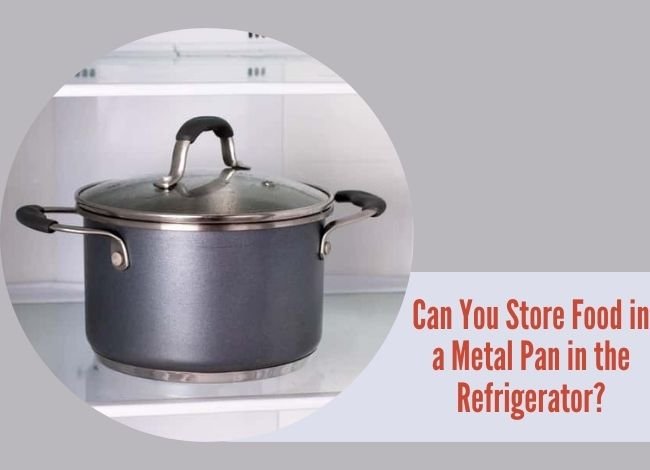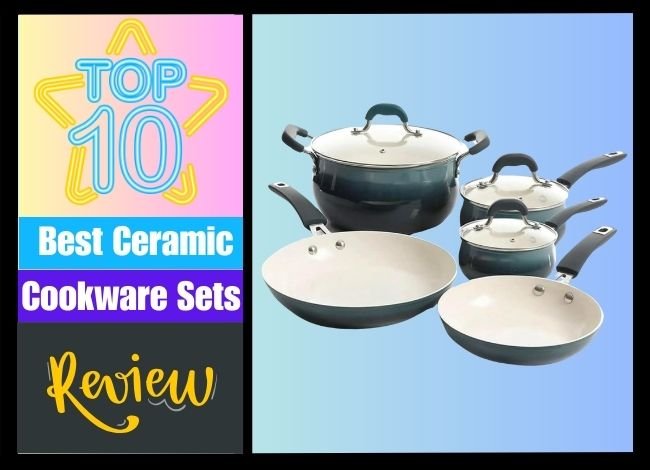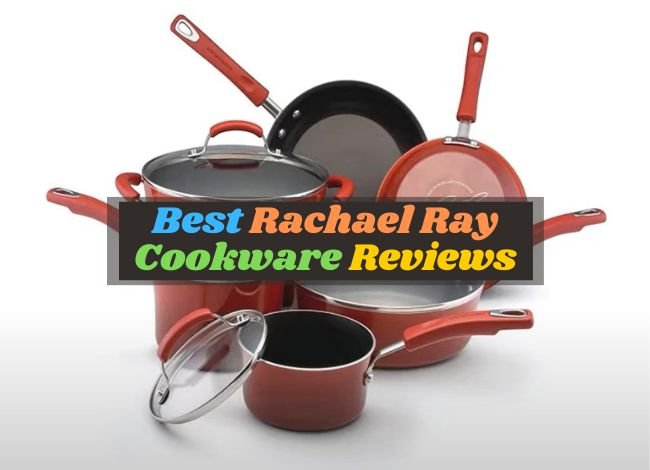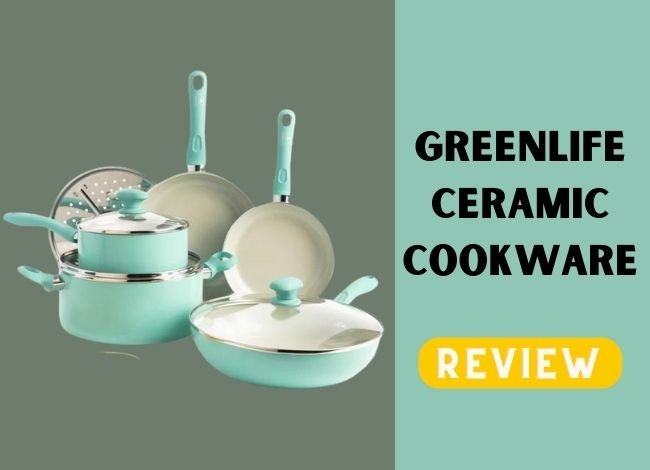Last Updated on January 10, 2024
Storing food safely is an important consideration for anyone who wants to maintain the freshness, flavor, and quality of their meals. It also helps to minimize the risk of foodborne illnesses. One common question among home cooks and chefs alike is: “Can you store food in a metal pan in the refrigerator?” Let’s delve deep into this topic to provide clarity.
Why Would Someone Want to Store Food in a Metal Pan?
Metal pans, especially those made of stainless steel or aluminum, are frequently used in cooking. After preparing a dish, it can seem convenient to simply cover the pan and place it directly into the refrigerator. This is particularly tempting when you have a large amount of food, such as a casserole, that might be cumbersome to transfer to another container. Moreover, using the same pan reduces the amount of dishwashing later on.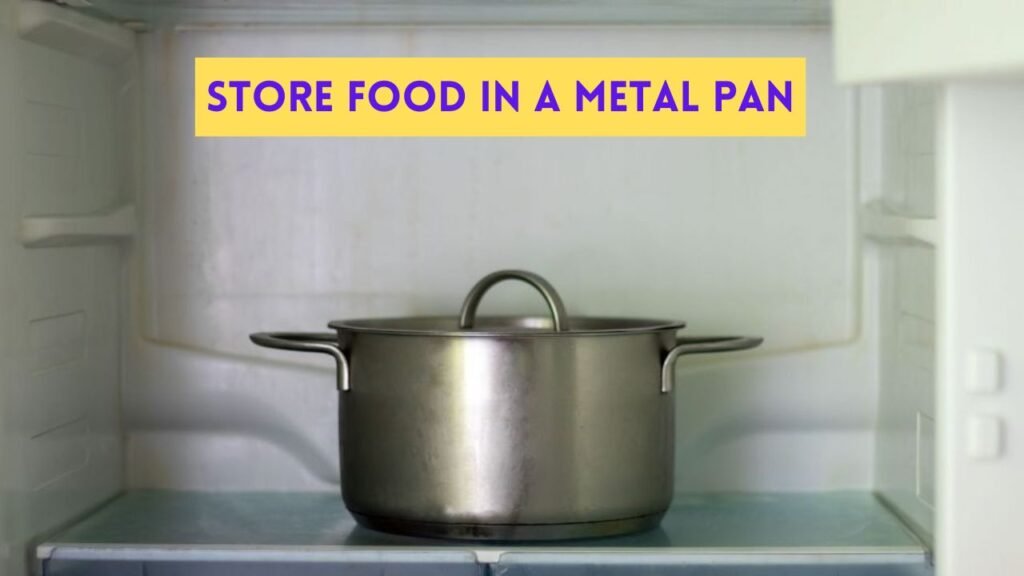
The Pros of Storing Food in a Metal Pan
- Temperature Retention: Metal pans, due to their conductive nature, can quickly adapt to the temperature of the refrigerator. This rapid cooling can be beneficial in slowing down the growth of harmful bacteria, ensuring that food remains safe to eat.
- Durability: Metal pans are sturdy and can handle the weight of heavy dishes without the risk of cracking or breaking, unlike some plastic or glass containers.
- Space Efficiency: For dishes prepared in large quantities, like lasagna or a big pot of chili, using the same pan for storage can save space. Instead of transferring contents to multiple smaller containers, you can store everything in the original pan.
The Cons of Storing Food in a Metal Pan
- Taste Alteration and Contamination: Storing acidic foods like tomato sauce or dishes with vinegar in metal pans, especially aluminum ones, can result in a metallic taste. This is due to the acidic ingredients reacting with the metal, leading to leaching. Not only does this alter the flavor of the food, but continuous consumption of such foods might pose health concerns.
- Corrosion and Discoloration: Some metals can corrode or discolor when they come into contact with certain foods. For instance, aluminum pans can get discolored spots if they’re exposed to salty or acidic foods for extended periods.
- Covering Concerns: Metal pans typically don’t come with airtight lids. Using plastic wrap or aluminum foil isn’t always effective in sealing out air or preventing strong odors from other foods in the fridge from infiltrating your stored dish.
- Efficiency Issues: While metal pans cool quickly, they can also make the surrounding area in the refrigerator colder. This can affect the temperature balance in your fridge, leading to uneven cooling or potential freezing spots.
Best Practices for Storing Food in Metal Pans
If you decide to store food in a metal pan, consider the following tips to do it safely:
- Use a Barrier: If you’re concerned about a metallic taste or potential reactions between food and the pan, place a layer of parchment paper or plastic wrap at the bottom of the pan before adding the food.
- Transfer Acidic Foods: To prevent leaching, transfer acidic or salty foods to a glass or plastic container before refrigerating.
- Ensure Proper Covering: Use a tight-fitting lid, or double up on plastic wrap or aluminum foil to seal the pan effectively. This helps in keeping the food fresh and preventing odors from permeating the dish.
- Monitor Duration: Don’t keep foods stored in metal pans in the refrigerator for extended periods. As a general rule, consume refrigerated leftovers within 3-4 days to ensure they remain safe to eat.
- Label the Food: Always label your stored food with the date it was cooked and a consume-by date. This way, you can keep track and ensure that you’re eating food that’s still safe.
Alternative Options
If you’re wary of storing food in metal pans, consider these alternatives:
- Glass Containers: Glass containers with airtight lids are an excellent choice. They don’t react with acidic or salty foods and can be safely used in both the refrigerator and freezer.
- Plastic Containers: Ensure they’re BPA-free and suitable for food storage. They’re lightweight and come in various sizes, making storage convenient.
- Silicone Containers: These are flexible, durable, and resistant to temperature changes. They’re also non-reactive, making them suitable for various types of foods.
Conclusion
While it’s possible to store food in a metal pan in the refrigerator, it’s essential to be mindful of the type of food and the kind of metal pan you’re using. By being aware of the potential issues and following best practices, you can maintain the quality and safety of your stored meals. However, if you’re in doubt, opt for alternative storage methods that pose fewer risks and provide peace of mind. Remember, when it comes to food safety, it’s always better to err on the side of caution.
Frequently Asked Questions
- Is it Safe to Store Food in Metal Pans in the Refrigerator?
- Addresses concerns about the safety of storing food in metal containers in a refrigerated environment.
- Can Storing Food in Metal Pans Affect its Flavor?
- Explores if and how metal pans might alter the taste of stored food.
- Are Certain Types of Food Not Recommended for Storage in Metal Pans?
- Discusses if specific food types should be avoided in metal storage due to reactions or flavor changes.
- Do Metal Pans Impact the Refrigerator’s Temperature or Efficiency?
- Investigates whether using metal pans in a fridge affects its cooling efficiency or internal temperature distribution.
- How to Properly Cover Food in Metal Pans for Refrigeration?
- Offers best practices for covering food in metal pans to ensure freshness and prevent contamination.
- What Types of Metal Pans are Best for Refrigerator Storage?
- Compares different types of metal pans (stainless steel, aluminum, etc.) for their suitability in refrigerated food storage.
- How Long Can Food Be Safely Stored in Metal Pans in the Fridge?
- Discusses the recommended storage duration for food kept in metal pans inside the fridge.
- Are There Any Health Concerns with Storing Acidic Foods in Metal Pans?
- Addresses potential health concerns when storing acidic foods (like tomato sauce) in metal containers.
- How to Clean and Maintain Metal Pans Used for Refrigerator Storage?
- Provides tips for cleaning and maintaining metal pans used for storing food to ensure hygiene and longevity.
- Can Metal Pans Cause Freezer Burn or Affect Food Quality in the Fridge?
- Explores the possibility of freezer burn or other quality issues when using metal pans for long-term food storage in the refrigerator.

